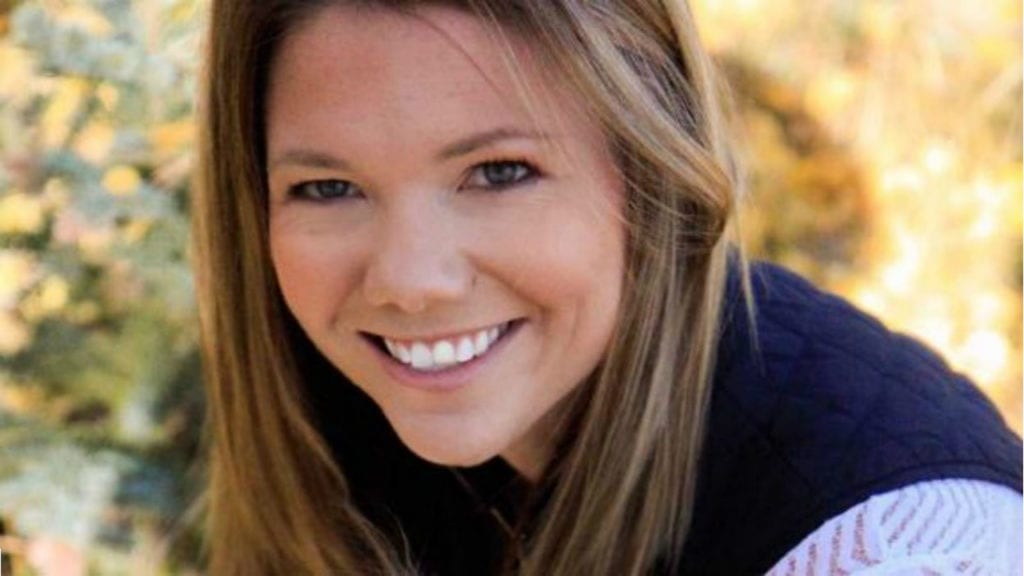WOODLAND PARK – Accused murderer Patrick Frazee is expected in court twice this week as his attorneys manage both the child custody case involving the daughter from his relationship with Kelsey Berreth, and discuss the use of evidence that would be destroyed in testing requested by prosecutors.
The custody hearing will take place in a Cripple Creek courtroom on Thursday. The grandparents on both sides of the family have sought to gain or retain custody of the child following Berreth’s death and Frazee’s arrest on charges of first degree murder.
Back in April, a judge once again ruled Patrick Frazee and Kelsey Berreth’s daughter will remain in the custody of Berreth’s parents for now.
Members of the media will not be allowed in that hearing in order to protect the privacy of the child.
Then on Friday, there’s the hearing on consumptive evidence testing, tests that would destroy an entire sample. As part of our coverage on the case, News5 asked Mark Pfoff, a former detective in the El Paso County Sheriff’s Office who worked on more than 50 homicide investigations, what that testing means.
“You’re usually looking at some form of body fluids, whether it’s blood or saliva or something like that,” Pfoff said.
Pfoff said the amount of evidence is so small, it’s likely not visible to the eye — meaning testing that evidence once would prevent any follow-up testing moving forward.
Frazee is accused of murdering Berreth on Thanksgiving last year at her home in Woodland Park. He’s also accused of trying to have his girlfriend, Krystal Kenney, kill Berreth multiple times over the course of several months.
The murder trial is scheduled to start on October 28 and is expected to last three weeks.
Recently, the court has considered requests from the defense to heavily restrict the presence and access to the case by media, citing concerns about the possibility of conducting a fair trial. In Colorado, media is not guaranteed access to a courtroom with recording equipment. News organizations must file requests with the presiding judge for coverage.

 <div class="caption-wrap"><div class="caption">Kelsey Berreth was last seen in Woodland Park on Nov. 22nd.
<div class="caption-wrap"><div class="caption">Kelsey Berreth was last seen in Woodland Park on Nov. 22nd. <div class="caption-wrap"><div class="caption">Patrick Frazee is booked into the Teller County Jail on a charge of first degree murder.
<div class="caption-wrap"><div class="caption">Patrick Frazee is booked into the Teller County Jail on a charge of first degree murder.  <div class="caption-wrap"><div class="caption">Patrick Frazee and Kelsey Berreth
<div class="caption-wrap"><div class="caption">Patrick Frazee and Kelsey Berreth <div class="caption-wrap"><div class="caption">The Woodland Park Police Department released video showing Kelsey Berreth on November 22nd, the last day she was seen.
<div class="caption-wrap"><div class="caption">The Woodland Park Police Department released video showing Kelsey Berreth on November 22nd, the last day she was seen.  <div class="caption-wrap"><div class="caption">Woodland Park Police Chief Miles De Young announces the arrest of Patrick Frazee on a charge of first degree murder.
<div class="caption-wrap"><div class="caption">Woodland Park Police Chief Miles De Young announces the arrest of Patrick Frazee on a charge of first degree murder.  <div class="caption-wrap"><div class="caption">Cheryl Berreth said she spoke on the phone with her daughter Kelsey twice on Thanksgiving and nothing sounded out of the ordinary.
<div class="caption-wrap"><div class="caption">Cheryl Berreth said she spoke on the phone with her daughter Kelsey twice on Thanksgiving and nothing sounded out of the ordinary. <div class="caption-wrap"><div class="caption">A display at a candlelight vigil in Woodland Park for Kelsey Berreth, who's been missing since Thanksgiving 2018.
<div class="caption-wrap"><div class="caption">A display at a candlelight vigil in Woodland Park for Kelsey Berreth, who's been missing since Thanksgiving 2018. <div class="caption-wrap"><div class="caption">People in Woodland Park gather on December 13, 2018 for a vigil to support the family of missing woman Kelsey Berreth. (KOAA)
<div class="caption-wrap"><div class="caption">People in Woodland Park gather on December 13, 2018 for a vigil to support the family of missing woman Kelsey Berreth. (KOAA)
 <div class="caption-wrap"><div class="caption">Local, state and federal authorities search the Florissant, Colorado home of Patrick Frazee.
<div class="caption-wrap"><div class="caption">Local, state and federal authorities search the Florissant, Colorado home of Patrick Frazee.
 <div class="caption-wrap"><div class="caption">Investigators with the FBI and Colorado Bureau of Investigation search the Woodland Park home of Kelsey Berreth on December 20, 2018 (KOAA)
<div class="caption-wrap"><div class="caption">Investigators with the FBI and Colorado Bureau of Investigation search the Woodland Park home of Kelsey Berreth on December 20, 2018 (KOAA)
 <div class="caption-wrap"><div class="caption">Investigators with the FBI and Colorado Bureau of Investigation search the Woodland Park home of Kelsey Berreth on December 20, 2018 (KOAA)
<div class="caption-wrap"><div class="caption">Investigators with the FBI and Colorado Bureau of Investigation search the Woodland Park home of Kelsey Berreth on December 20, 2018 (KOAA)
 <div class="caption-wrap"><div class="caption">Investigators with the FBI and Colorado Bureau of Investigation search the Woodland Park home of Kelsey Berreth on December 20, 2018 (KOAA)
<div class="caption-wrap"><div class="caption">Investigators with the FBI and Colorado Bureau of Investigation search the Woodland Park home of Kelsey Berreth on December 20, 2018 (KOAA)
 <div class="caption-wrap"><div class="caption">Teller County Deputies block the entrance to Patrick Frazee's home in Florissant, Colorado.
<div class="caption-wrap"><div class="caption">Teller County Deputies block the entrance to Patrick Frazee's home in Florissant, Colorado. 












